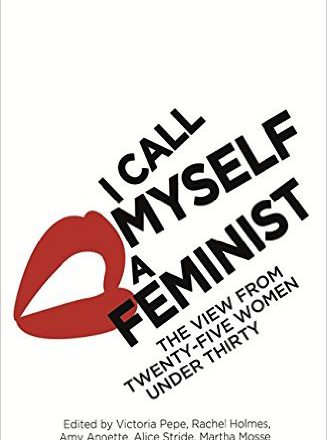
I Call Myself a Feminist | Victoria Pepe | Hachette Australia
In its introduction, I Call Myself a Feminist acknowledges the argument that we have reached ‘peak feminism’. Feminist commentary is ubiquitous in many corners of the internet and is finding a stronger voice in mainstream media. The collection’s contributors are mainly based in England, but it’s not hard to summon Australian examples to underline this argument.
Only recently did Rosie Batty finish her year of campaigning against family violence under the Australian of the Year title, and in the last few weeks, the media has been dominated by discussions around athletes such as Mitchell Pearce and Chris Gayle, and the persistent sporting culture that permits their unacceptable behaviour towards women.
But aren’t these very instances the very reason why feminism needs to continue to grow? To suggest we have hit peak feminism is also to suggest that we have hit its apex. That we are witnessing the cresting of a wave about to come crashing down, either because there is little left for feminism to do or because people are turning away out of disinterest or fatigue.
This collection of essays does a superb job of pointing out how there is so much left to fight passionately for and how feminism, in all its definitions and interpretations, is still so important to this end.
It’s particularly heartening that not only does the collection cover a wide range of intersectional feminist issues, the editors have made sure to include writers as diverse as the subject matter.
I Call Myself a Feminist is quite literally the younger sister of 2013’s Fifty Shades of Feminism. It brings together the voices of 25 young women under 30 to discuss their relationship with feminism and the ‘how’ and ‘why’ of their identification with the label.
The essays touch on language, consent, identity, body acceptance, suffragettes, religion, race, gender, and sexuality – with each piece introduced by notable quotes on the topic of discussion.
It’s particularly heartening that not only does the collection cover a wide range of intersectional feminist issues, the editors have made sure to include writers as diverse as the subject matter.
The first thing I did after setting this book down was to look up every single one of the contributors. I wanted to know more about the accomplishments of each of the intelligent and insightful young women who had written so beautifully and powerfully.
And I do. Call myself a feminist, that is.
Because we have not achieved equality.
Because women are still disproportionately shamed, devalued and victims of violence.
And most importantly, as Jinan Younis quoting Audre Lorde in her ‘Manifesto for Feminist Intersectionality’ reminds me: “I am not free while any woman is unfree, even when her shackles are very different from my own.”
I Call Myself a Feminist is now available from Hachette Australia.
Pia White is a lawyer and feminist working in Melbourne.

